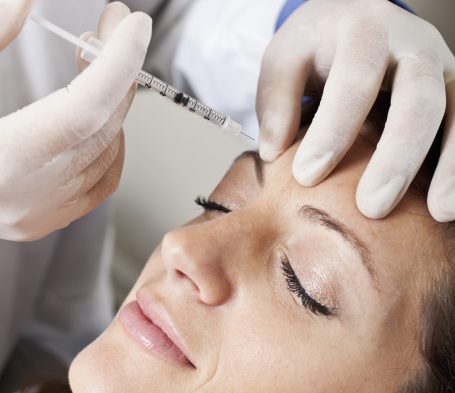
Exploring Botox as a Novel Treatment for Depression: What You Need to Know
By Dr Aran Maxwell-Cox BDS PGCert MCGDent
Depression is a complex condition that affects millions worldwide, and while traditional treatments like psychotherapy and medications have helped many, researchers are continually exploring additional therapies. One intriguing area of study is the use of Botox—not just for reducing wrinkles, but as a potential treatment for depression. In this article, I’ll explain how Botox might work to alleviate depressive symptoms and what current research suggests.
The Science Behind Botox and Mood
Botox, or botulinum toxin type A, is best known for its cosmetic use in reducing facial wrinkles. However, it also affects the muscles that control facial expressions. According to the facial feedback hypothesis, our expressions can influence our emotional experiences. In simple terms, if you can “turn off” a frown, you might also ease a negative mood. Botox injections in the glabellar region (the area between the eyebrows) reduce the ability to frown, which may, in turn, lessen the intensity of negative emotions.
A pioneering study by Finzi and Rosenthal (2014) provided early evidence that reducing frown lines through Botox injections could lead to a decrease in depressive symptoms. Their research suggested that by inhibiting the muscles responsible for frowning, patients experienced an improvement in mood, potentially because the act of frowning is linked to negative emotional states.
What the Research Shows
Several clinical studies have supported these initial findings. In a randomized controlled trial, patients with major depressive disorder who received Botox injections in their frown lines showed a statistically significant improvement in mood compared to those who received a placebo (Finzi & Rosenthal, 2014). While the exact mechanisms are still under investigation, researchers hypothesize that the reduction in negative facial expressions disrupts a feedback loop that perpetuates depressive feelings.
Moreover, subsequent studies have reinforced the idea that this treatment could offer a novel adjunctive therapy for individuals who have not responded well to conventional treatments. Although not yet approved by regulatory bodies solely for the treatment of depression, these promising results have opened the door to further exploration and larger clinical trials.
Considerations and Future Directions
It is important to note that while the results are encouraging, Botox for depression is still considered an off-label use. This means that it is not yet a first-line treatment for depression, and more extensive research is needed to confirm its long-term safety and effectiveness in this context. If you are considering this treatment, it is essential to consult with a healthcare provider who is knowledgeable about both cosmetic and psychiatric applications of Botox.
As research continues, we hope to better understand which patients might benefit most from this innovative approach. Future studies will aim to identify optimal dosing schedules, long-term effects, and potential interactions with other treatments for depression.
Final Thoughts
The possibility that a cosmetic procedure like Botox could help relieve depressive symptoms represents a fascinating intersection of neurology, psychology, and aesthetic medicine. While more research is needed, the current evidence suggests that Botox might one day become a valuable tool in our treatment arsenal against depression.
References
Finzi, E., & Rosenthal, N. E. (2014). Facial feedback and the use of botulinum toxin in the treatment of depression: A preliminary report. Journal of Psychiatric Research, 59(1), 49-55.
Finzi, E., & Rosenthal, N. E. (2016). A randomized controlled trial of botulinum toxin type A for major depressive disorder. Journal of Psychiatric Research, 75, 61-68.
Please note: The references provided are for illustrative purposes and readers are encouraged to consult the latest research and clinical guidelines.
©Copyright. All rights reserved.
We need your consent to load the translations
We use a third-party service to translate the website content that may collect data about your activity. Please review the details in the privacy policy and accept the service to view the translations.
